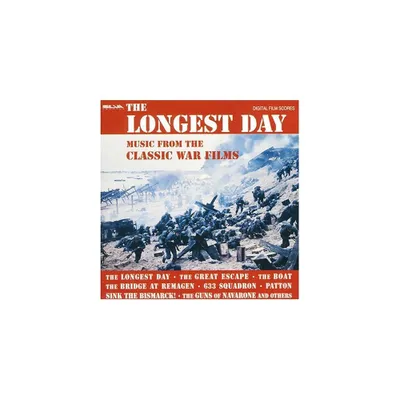Home
Making Patton: A Classic War Film's Epic Journey to the Silver Screen
Loading Inventory...
Barnes and Noble
Making Patton: A Classic War Film's Epic Journey to the Silver Screen
Current price: $39.99


Barnes and Noble
Making Patton: A Classic War Film's Epic Journey to the Silver Screen
Current price: $39.99
Loading Inventory...
Size: Hardcover
*Product Information may vary - to confirm product availability, pricing, and additional information please contact Barnes and Noble
Forever known for its blazing cinematic image of General George S. Patton (portrayed by George C. Scott) addressing his troops in front of a mammoth American flag, Patton won seven Oscars in 1971, including those for Best Picture and Best Actor. In doing so, it beat out a much-ballyhooed M*A*S*H, irreverent darling of the critics, and grossed $60 million despite an intense anti-war climate. But, as Nicholas Evan Sarantakes reveals, it was a film that almost didn’t get made.
Sarantakes offers an engaging and richly detailed production history of what became a critically acclaimed box office hit. He takes readers behind the scenes, even long before any scenes were ever conceived, to recount the trials and tribulations that attended the epic efforts of producer Frank McCarthy—like Patton a U.S. Army general—and Twentieth Century Fox to finally bring Patton to the screen after eighteen years of planning.
Sarantakes recounts how filmmakers had to overcome the reluctance of Patton’s family, copyright issues with biographers, competing efforts for a biopic, and Department of Defense red tape. He chronicles the long search for a leading man—including discussions with Burt Lancaster, John Wayne, and even Ronald Reagan—before settling on Scott, a brilliant actor who brought to the part both enthusiasm for the project and identification with Patton’s passionate persona. He also tracks the struggles to shoot the movie with a large multinational cast, huge outlays for military equipment, and filming in six countries over a mere six months. And he provides revealing insider stories concerning, for example, Scott’s legendary drinking bouts and the origins of and debate over his famous opening monologue.
Drawing on extensive research in the papers of Frank McCarthy and director Franklin Schaffner, studio archives, records of the Academy of Motion Picture Arts and Sciences, contemporary journalism, and oral histories, Sarantakes ultimately shows us that Patton is more than just one of the best war films ever made. Culturally, it also spoke to national ideals while exposing complex truths about power in the mid-twentieth century.
Sarantakes offers an engaging and richly detailed production history of what became a critically acclaimed box office hit. He takes readers behind the scenes, even long before any scenes were ever conceived, to recount the trials and tribulations that attended the epic efforts of producer Frank McCarthy—like Patton a U.S. Army general—and Twentieth Century Fox to finally bring Patton to the screen after eighteen years of planning.
Sarantakes recounts how filmmakers had to overcome the reluctance of Patton’s family, copyright issues with biographers, competing efforts for a biopic, and Department of Defense red tape. He chronicles the long search for a leading man—including discussions with Burt Lancaster, John Wayne, and even Ronald Reagan—before settling on Scott, a brilliant actor who brought to the part both enthusiasm for the project and identification with Patton’s passionate persona. He also tracks the struggles to shoot the movie with a large multinational cast, huge outlays for military equipment, and filming in six countries over a mere six months. And he provides revealing insider stories concerning, for example, Scott’s legendary drinking bouts and the origins of and debate over his famous opening monologue.
Drawing on extensive research in the papers of Frank McCarthy and director Franklin Schaffner, studio archives, records of the Academy of Motion Picture Arts and Sciences, contemporary journalism, and oral histories, Sarantakes ultimately shows us that Patton is more than just one of the best war films ever made. Culturally, it also spoke to national ideals while exposing complex truths about power in the mid-twentieth century.


















